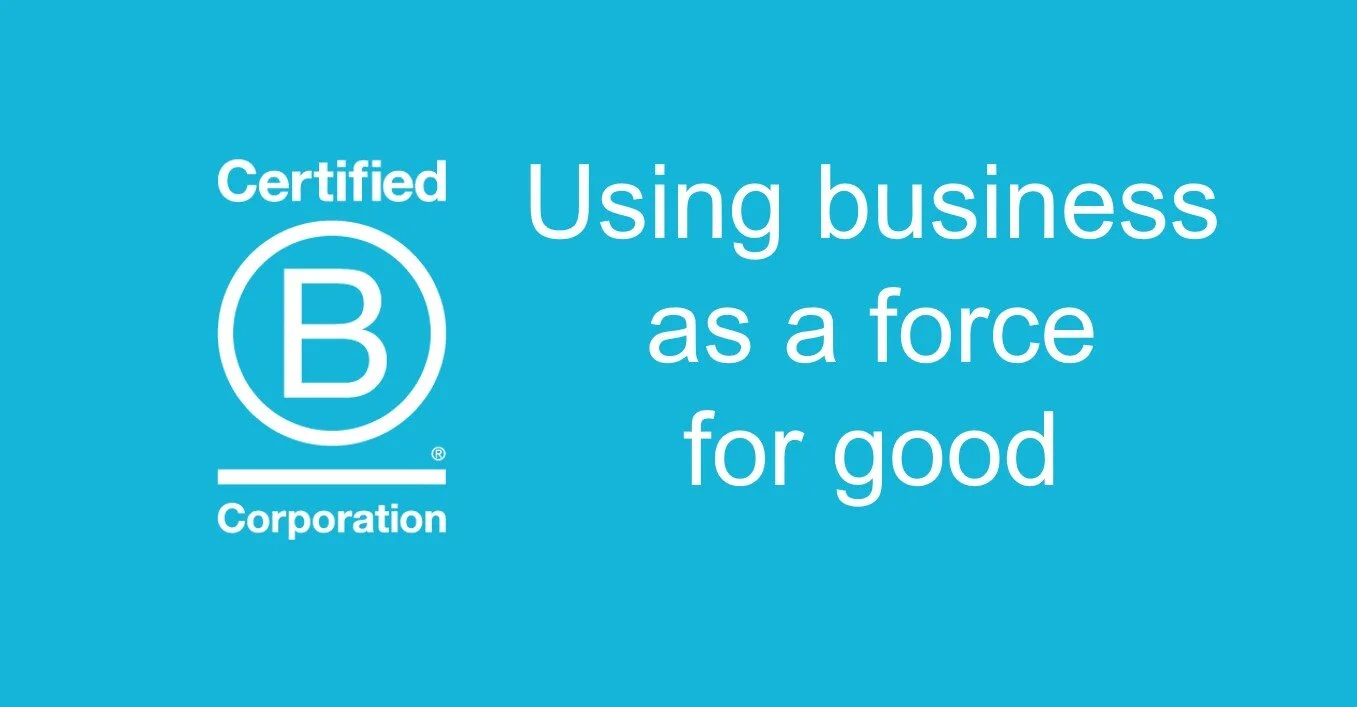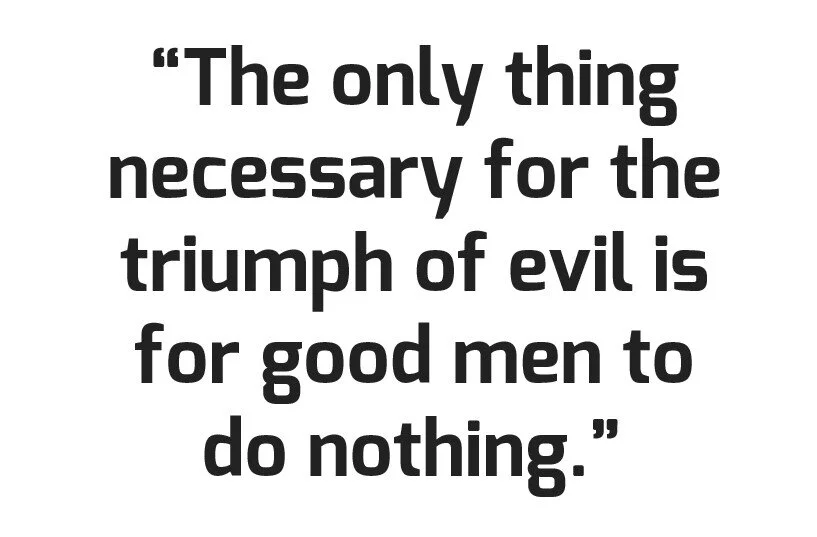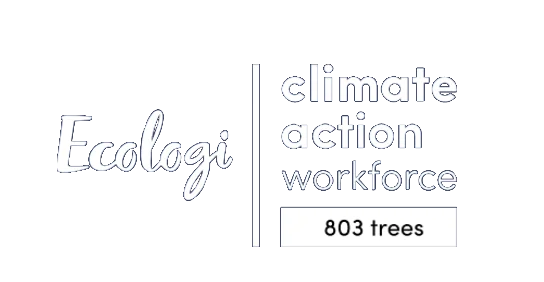March 2024 was B Corp month in the UK, a time when we celebrated the businesses that are striving to be a force for good by putting people and planet on par with profit. B Corps are companies that meet the highest standards of social and environmental performance. They operate under a model of stakeholder capitalism, where the needs and interests of the environment and local community – whether this be customers, employees, suppliers or investors – come first.
Is it possible to follow this stakeholder-centric framework without becoming a B Corp? Certainly. Is it harder to lock in your mission and values without official certification? This depends on how committed you are to measuring, tracking and improving your impact by yourself. B Corp gives companies a simple, structured way to see how well they are doing, define their social and environmental goals, then implement performance metrics. It also allows businesses to identify the primary impact areas in which they can create value for their stakeholders.
On top of this, identifying as a B Corp is a great way to communicate your beliefs and priorities to your customers, suppliers, employees etc. If, for example, a client was concerned whether their ethical or environmental values aligned with your own, they would be encouraged in seeing that your company has achieved B Corp status.
So, is B Corp merely a label, sticker or badge? Is it, as some critics have argued, just an elaborate marketing ploy – a way to appeal to ethically-minded consumers and improve a brand’s image?
Yes, becoming a B Corp does often come with these benefits. But it’s reductive to say that the B Corp movement is simply a matter of branding. Some people may view B Corp certification as nothing more than a badge of honour – something to show off or add to your website footer to prove you’re doing your part. But for the majority, for the businesses who are really trying to make a difference, B Corp certification isn’t just a label – it’s an outward display of commitment.
WHAT’S IN A NAME?
Submitting an impact assessment, paying the associated costs, and embedding social and environmental values into your company mission: these aren’t small tasks. Businesses that decide to embark on the B Corp journey are highly aware that this a lengthy and rigorous process. Of course, it’s great to be able to display your status at the end of it, but this alone wouldn’t be reason enough to take on such an enduring commitment.
It’s also important to remember that B Corp status is not a measure of value in itself. Achieving B Corp certification doesn’t mean a business is perfect, nor does it mean that a business is exempt from criticism. All businesses make mistakes. It’s how the business deals with these issues and takes proactive steps to do better that shows their true character.
Drinks company Innocent, for example, were reprimanded by ASA in early 2022, for misleading customers with one of their recent ad campaigns. The animated TV ad called for customers to “fix up the planet” and seemed to imply that purchasing from the company had direct environmental merits. In response to complaints, Innocent argued that they were a B Corp, and that the ad was simply meant to be a call to action. The company reminded customers that they had made a commitment to be carbon neutral by 2025 and that they have been working to make their smoothie bottles more sustainable. So, while the products themselves don’t appear to have a net positive environmental impact, the company has written sustainability into its mission and is changing its behaviour accordingly.
Obviously, this leads us to question a few things. Is it fair for Innocent to market itself as a ‘green’ company? And is it fair, or even logical, to expect all B Corps to excel in all areas?
B Corp is a framework that allows businesses to evaluate their impact, take accountability and address the social and environmental dimensions in which they are lacking. Working through the B Impact Assessment (BIA), the goal is to gain as many points as you can. But if you score 85 points out of a possible 200 (the minimum score for certification is 80), this doesn’t make you a bad business, in the same way that scoring 150 points doesn’t make you a good one.
What B Corp does is give companies a chance to make a change in the world. It’s up to the company itself to decide whether they are willing to take on such a challenge. Of course, it’s extremely disappointing when we learn that B Corps are not living up to their promises or have made mistakes that undermine their ESG commitments. Only last year, in an open letter signed by over 100 former employees, B Corp BrewDog was accused of creating a “culture of fear” and mistreating their staff. Does this take away from the fact that the company is the world’s first carbon negative beer brand? No. Does it put some of the company’s other social and environmental promises into question? Yes.
MAINTAINING INTEGRITY
One of the biggest reasons businesses fail or fall short is because they ultimately lose sight of their purpose. By having companies write it into their Articles of Association, B Corp tries to ensure that they stay aligned with their mission. But the onus isn’t on B Corp to monitor a business’ behaviour – though they do take breaches of the community’s core values very seriously. It’s up to the business itself to honour its commitments and continue improving.
B Corps are legally bound to report their impact and are reassessed every three years. But what happens if the company’s standards slip in that time? As we’ve seen in the case of BrewDog, this isn’t outside the realm of possibility. However, B Lab promises that all credible complaints against a company will receive a full and fair investigation.
At the time of writing, the only company with an open investigation is BrewDog, which goes to show that breaches of core B Corp values are uncommon. Even so, should BrewDog’s failure to uphold B Corp’s stringent standards deter other businesses from attempting to gain certification? It would be a huge shame if that were the case.
B Corp might not be faultless in every aspect, but it represents a community of businesses that are trying to be better. If we want to change the world of business – or the world in general – we have to start somewhere. And what better way to do it than by investing time and money into a movement that is going to lift us up and allow us to pursue a purpose greater than profit. For those businesses that want to put people and planet first, B Corp certification is not an end goal, but a vital step in improving ESG performance and making a difference, whether this be local or global.
Interested in becoming a B Corp? Learn more about certification by visiting the official website here: https://bcorporation.net/
Plus, if you think B Corp certification might be the next step for your business but you don’t know where to start, we can help guide you through the process. Just visit the Business On Purpose support page or send an email to andy@businessonpurpose.uk.






